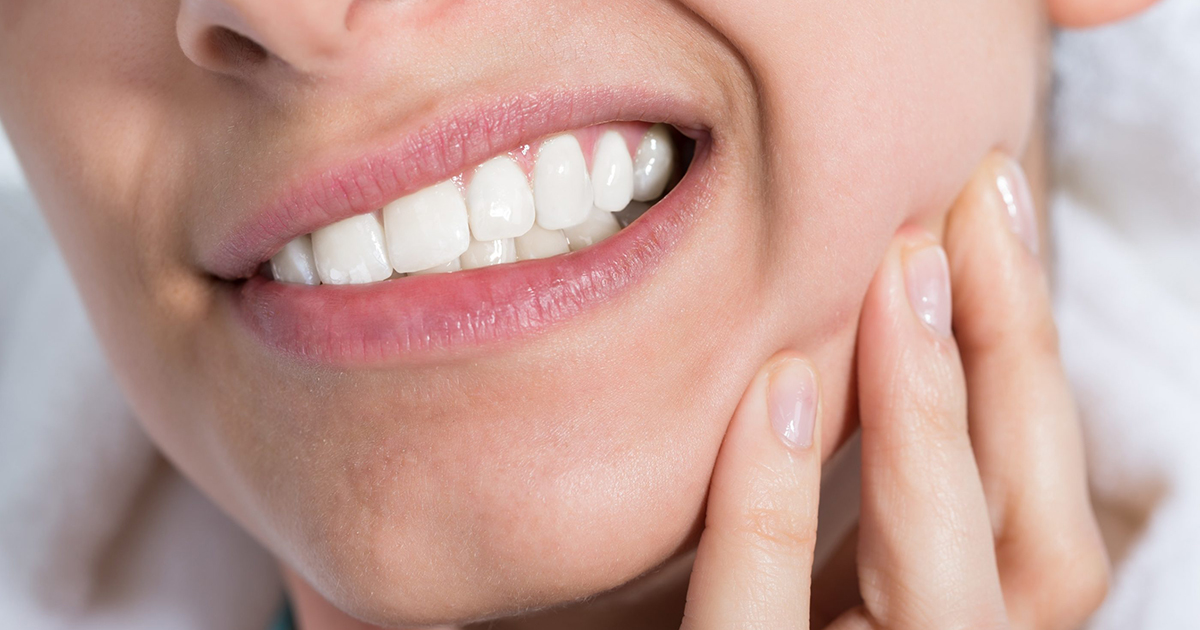Causes of Temporomandibular Joint Disease
The temporomandibular joint (TMJ) is wired like a sliding hinge to connect your jaw to your skull. One joint is on either side of a person's jaw. Temporomandibular joint disease, also called a TMJ disorder, is an illness that causes pain in a person's jaw and the muscles controlling the jaw. It can often be difficult to determine the cause, as the pain can occur due to many potential factors, such as from grinding or clenching of the teeth. Thankfully, most discomfort that occurs due to TMJ disorders is only temporary. Patients can manage their care or receive nonsurgical treatments from their doctor. Surgery is only recommended after all other possible measures have failed. Start reading now to learn about some of the most common causes of temporomandibular joint disease.
Arthritis

Certain types of arthritis, such as rheumatoid arthritis and osteoarthritis, can increase a person's likelihood of developing a TMJ disorder. The temporomandibular joint functions by combining sliding motions with hinge action. All parts of the bone that interact within the joint have a covering of cartilage. A shock-absorbing disk separates the bones to keep movement smooth. However, it's possible rheumatoid arthritis will wear away both the disk and the cartilage.
Rheumatoid arthritis is perhaps the most common type of arthritis and occurs when the body attacks itself. TMJ disorders may develop as a side effect of the illness. Rheumatoid arthritis attacks the body's tissues, destroying cartilage, whereas osteoarthritis is a joint disorder that wears down the cartilage between bones over long periods. Osteoarthritis is a progressive disease, and when it wears away the cartilage in the jawbone, this can cause TMJ disorders to develop.
Continue reading to learn about the injury that can cause temporomandibular joint disease to occur.
Injury To The Jaw

Injury to the jaw will increase a person's risk of developing TMJ disorders, though the exact one will vary depending on the scope of the injury. When a person is dealt a blow to the jaw, it's possible the joint itself will become damaged. The damaged joint can lead to the development of temporomandibular joint disorders.
This is somewhat intuitive, as TMJ disorders occur when there's any problem with the temporomandibular joint. An injury is a much more effective way of causing damage than an autoimmune disease. The only question is whether the TMJ disorders will develop immediately, or whether they would develop over time.
Different types of injury might cause different results. Not a lot is known about the direct cause of different temporomandibular joint disorders. However, it stands to reason that if a person has their jaw dislocated or badly broken, the joint probably suffered noticeable damage. But what if the blow wasn't that serious? Hairline cracks in the bone and fractional displacements of the joint could lead to severe pain down the road.
Continue reading to learn how teeth might cause TMJ disorders.
Grinding Or Clenching Teeth

Clenching and grinding your teeth on occasion is natural. Small amounts of teeth grinding won't cause damage to your jaw or your mouth, but when grinding occurs on a regular basis, it can increase your risk of developing temporomandibular joint disorders. You might also suffer damage to your teeth and the potential for other oral health issues.
Many don't realize they grind their teeth, because the majority of teeth grinding is done while asleep. The condition can be a sign of anxiety and stress, but in most cases, it's caused by crooked teeth or an abnormal bite. Studies also indicate sleep disorders like sleep apnea might cause teeth grinding.
Teeth grinding puts an enormous amount of pressure on the jaw. When that pressure moves back and forth, there's an increased potential for the jaw to slip out of place or suffer other injuries from wear-and-tear. Chronic teeth grinding might even change a person's facial appearance, although this only tends to happen in extreme cases. If grinding is the cause of your TMJ disorders, you might benefit from having your dentist fit a mouth guard to protect your teeth.
Continue reading to learn how some connective tissues conditions might be related to temporomandibular joint disease.
Connective Tissue Diseases

There are a few connective tissue diseases that might cause problems throughout the body, with the temporomandibular joint being just one of the multiple areas affected. The best known is mixed connective tissue disease, otherwise known as MCTD. This disorder has a mixture of features from systemic lupus, systemic sclerosis, polymyositis, and erythematosus.
The most important thing to understand is MCTD can cause widespread problems with joint pain. It also causes issues with the internal organs, muscle weakness, and possible skin abnormalities. Diagnosis of MCTD comes from an analysis of the symptoms and blood tests that show the related levels of the necessary antibodies. MCTD is another autoimmune disease that causes the body to attack itself. It can be treated with the same methods most other autoimmune diseases use. If a person develops TMJ disorders as a result of the joint pain caused by MCTD, the best course of actionis to treat the MCTD rather than the joint itself.
Continue reading to learn about other facial pains related to TMJ disorders.
Other Facial Pain

Other forms of facial pain may cause problems in the temporomandibular joint, and at the very least, they will increase the risk of developing problems. In some cases, pain from headaches or internal pressure will radiate to the jaw. This radiating pain can develop into a TMJ disorder, especially if the patient is moving their jaw in unconventional ways to try to provide relief.
"Other facial pain" is a vague definition that can encompass any number of injuries and illnesses. This may be a case where it's a matter of correlation, not causation. If a person is experiencing pain throughout their face for any reason, it makes sense for the pain to extend down to the jaw. Similarly, if a person is experiencing jaw pain, it makes sense for it to radiate into the skull.
Researchers have yet to pinpoint an exact cause for TMJ disorders. Sometimes, they can develop seemingly out of nowhere, when no other risk factors were present. And sometimes they make perfect sense as the side effect of an injury or illness.
